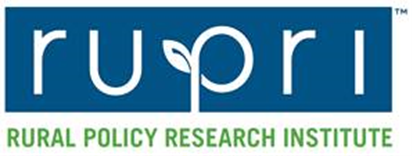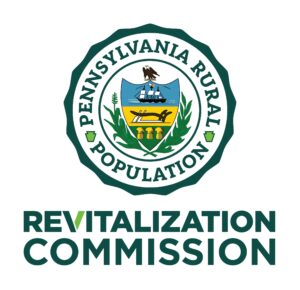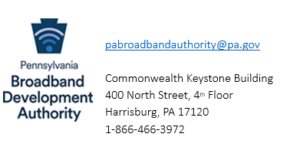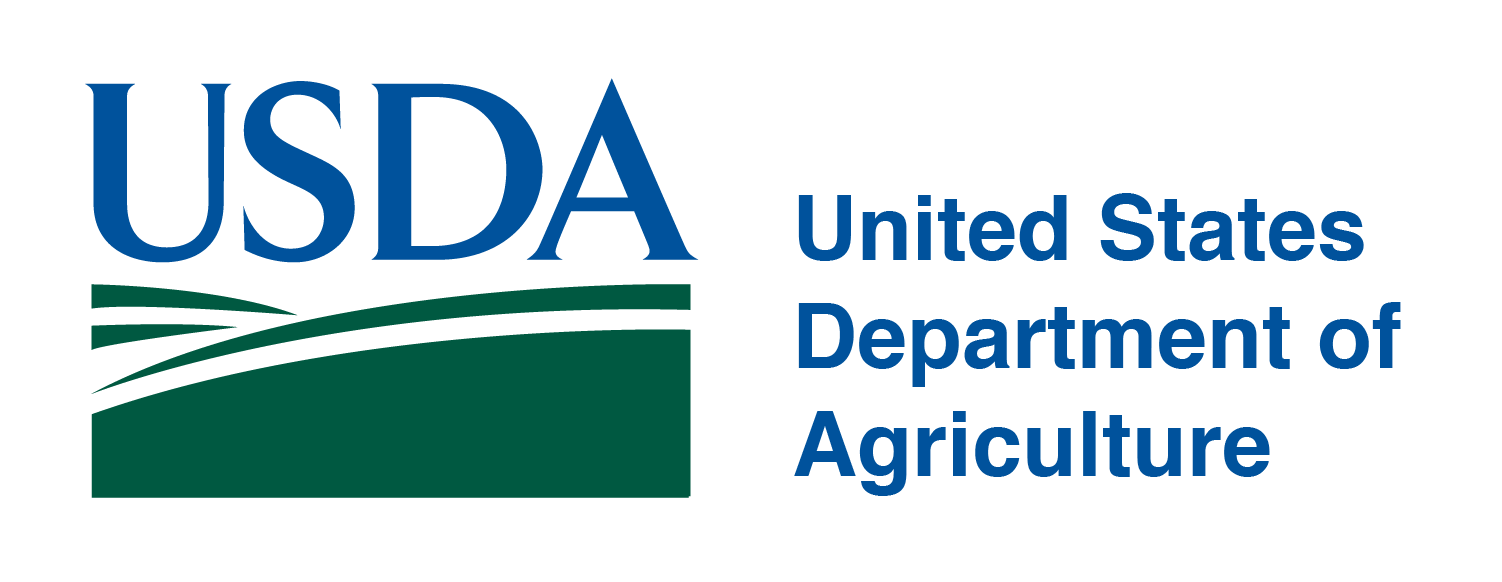- Weathering the Storm Together: Community Resiliency Hubs Hold the Promise of Local Self-Sufficiency and Supportive Mutual Aid
- Virginia Tech Researchers Bring Rural Families into the Nation's Largest Study of Early Brain and Child Development
- Expanding Access to Cancer Care for Rural Veterans
- VA: Veterans Rural Health Advisory Committee, Notice of Meeting
- Scaling Rural Wellness with Clever Collaboration
- Stroudwater Associates Enhances Rural Healthcare Dashboard with New Data to Support State Rural Transformation Grant Applications
- Harvest Season Is Here: Busy Times Call for Increased Focus on Safety and Health
- HHS Dispatches More Than 70 Public Health Service Officers to Strengthen Care in Tribal Communities
- Wisconsin Rural Hospitals Team up to Form Network
- CMS Launches Landmark $50 Billion Rural Health Transformation Program
- American Heart Association Provides Blood Pressure Kits at Southeast Arkansas Regional Libraries to Support Rural Health
- Broadening Access to Minimally Invasive Surgery Could Narrow Rural-Urban Health Gaps
- Instead of Selling, Some Rural Hospitals Band Together To Survive
- Help Line Gives Pediatricians Crucial Mental Health Information to Help Kids, Families
- Rural Health: A Strategic Opportunity for Governors
New ASPE Issue Brief on Medicaid/CHIP Enrollee Use of Telehealth
In this brief, the Department of Health and Human Services’ Assistant Secretary for Planning and Evaluation (ASPE) examines trends in Medicaid and Children’s Health Insurance Program (CHIP) telehealth utilization before and during the COVID-19 public health emergency (PHE). Specifically, it describes patterns of telehealth service utilization based on where enrollees and providers live and work, highlighting trends for rural and urban enrollees, and telehealth utilization in geographic health professional shortage areas (HPSAs). It concludes that the use of telehealth in the Medicaid and CHIP programs warrants continued examination in both urban and rural areas. Medicaid and CHIP are important sources of insurance coverage in rural areas covering 47 percent of children and 18 percent of adults in rural counties.
New from the RUPRI Center for Rural Health Policy Analysis Medicare Advantage Enrollment Update 2024

This policy brief continues RUPRI Center’s annual update of Medicare Advantage (MA) enrollment including the changes in enrollment in types of MA plans, and health policy changes that may have had an impact.
Key Findings:
- Medicare Advantage (MA) enrollment now exceeds 50 percent of eligible beneficiaries (enrolled in both Part A and Part B) in metropolitan counties (56.1 percent); at the current rate of growth, nonmetropolitan enrollment is expected to exceed 50 percent (currently 48.1 percent) next year, in 2025.
- While the annual rate of MA growth continues to exceed the rate of growth in total Medicare eligible beneficiaries, it has moderated somewhat from previous years.
- Much of the growth in nonmetropolitan MA enrollment has been in plans using local preferred provider organizations (PPOs), accounting for a majority of MA enrollees in nonmetropolitan counties since 2022.
Click here to read the full brief.
Additional products:
- Medicare Advantage Enrollment Updates: https://ruprihealth.org/maupdates/enrollment.html
- Medicare Advantage, National and State Enrollment Tables and Maps: https://ruprihealth.org/maupdates/nstablesmaps.html
Authors: Fred Ullrich, BA; and Keith Mueller, PhD
For more information, contact:
Keith J. Mueller, PhD; keith-mueller@uiowa.edu
Director, RUPRI Center for Rural Health Policy Analysis
University of Iowa College of Public Health
Office: 1.319.384.3832
Pennsylvania Rural Population Revitalization Commission Launched

The Center for Rural Pennsylvania Board of Directors, alongside the Pennsylvania Rural Population Revitalization Commission, held an inaugural press conference on January 9, 2025 at the Erie Crossroads Conference Center at the Pennsylvania Farm Show Complex and Expo Center in Harrisburg. The event recognized and officially swore in the appointees to the Commission and highlighted its critical mission to address population decline and the challenges facing rural regions in Pennsylvania.
Established by Act 21 of 2024, legislation with bicameral, bipartisan support, the Commission is tasked with creating reviews and recommendations to attract and retain residents in rural areas. Its work will focus on addressing the challenges posed by population shifts and changing demographics in rural communities across the Commonwealth. The Commission will also recommend necessary legislative and regulatory changes to support rural revitalization.
This Commission will play a vital role in informing medium- and long-term planning at the county, regional, and state levels. Commission findings will guide efforts to address policy issues such as workforce availability, housing, healthcare, education, and transportation.
“The Rural Population Revitalization Commission is a first-of-its-kind initiative established to make Pennsylvania a national leader in retaining, attracting, and revitalizing the population of our rural communities,” said Senator Gene Yaw, Chairman of the Center for Rural Pennsylvania Board of Directors. “This collaborative effort is a critical step towards reversing population decline and pressures facing our rural communities and will provide the foundation for long-term success.”
“The Rural Population Revitalization Commission demonstrates what’s possible when legislators work across party and chamber lines for the good of Pennsylvanians,” said Representative Eddie Day Pashinski, Vice Chairman of the Center for Rural Pennsylvania Board of Directors. “I believe these talented commissioners from across rural PA are up to the task of identifying what’s working and what needs to change to improve the well-being of all our current—and future—residents. Through their work and the support of policymakers, this commission can make Pennsylvania a national leader in addressing rural population change.”
“From education to healthcare to transportation, the Commission’s findings will have a far-reaching impact, ensuring that rural Pennsylvania remains an attractive and viable place to live and work,” said Senator Judy Schwank, member of the Center for Rural Pennsylvania Board of Directors and Pennsylvania Rural Population Revitalization Commission. “In facing the pressures of population decline, it is imperative that we think not just about today, but about tomorrow. Planning and collaboration will be the foundation of our efforts.”
“Our report clearly shows Pennsylvania’s rural communities in decline,” said Representative Dan Moul, member of the Center for Rural Pennsylvania Board of Directors. “The Commission is tasked with finding solutions that will turn that around. One of the biggest obstacles will be government regulations that slow down progress and increase costs. I am hopeful they can cut through the red tape and find ways to reverse course.”
“It is an honor and privilege to serve as Chairman of the Commission, and I am confident that the appointees of this Commission will work tirelessly to achieve success in finding solutions,” said Dr. Kyle C. Kopko, Chairman of the Pennsylvania Rural Population Revitalization Commission and Executive Director of the Center for Rural Pennsylvania. “This Commission has the opportunity to turn the challenges facing rural communities in Pennsylvania into opportunities for revitalization, crafting meaningful recommendations that ensure the long-term vitality of our rural areas.”
The Commission’s collaborative approach, which includes input from state and local officials, nonprofit groups, business leaders, and industry experts, is essential for ensuring that rural Pennsylvania remains resilient in the years to come.
Commission appointees include:
- Dr. Kyle C. Kopko, Chairman, Pennsylvania Rural Population Revitalization Commission; Executive Director, Center for Rural Pennsylvania
- Senator Judy Schwank
- Senator Judy Ward
- Representative Paul Takac
- Representative Michael Stender
- Albert Abramovic, Venango County Commissioner
- Betsy McClure, Greene County Commissioner
- Janet Pennington, School Board Member, Southeastern Greene School District
- Mark Critz, Western Regional Director, Pennsylvania Department of Agriculture; Executive Director, Pennsylvania Rural Development Council
- Drew Popish, Northeast Regional Director, Office of Governor Shapiro
- Lisa Davis, Director, Pennsylvania Office of Rural Health
- Dr. Karen Riley, President, Slippery Rock University of Pennsylvania
- Jordan Grady, President, Butler County Chamber of Commerce
- Gina Suydam, President, Wyoming County Chamber of Commerce
- Nathan Lesh, Vice President, Pennsylvania Future Farmers of America
For more information, visit www.rural.pa.gov/commission.
Pennsylvania’s BEAD Program Application Deadline EXTENDED, Important Updates

The BEAD Program Application Period One deadline has been extended to Friday, February 7, 2025, at 11:59 PM. Late or incomplete applications will not be evaluated.
The Pennsylvania Broadband Development Authority (PBDA) maintains a robust list of Frequently Asked Questions which are updated regularly. We encourage those interested in applying to check back often for new information.
Additionally, please note the following important program updates:
- Option to designate Broadband Serviceable Areas (BSAs) as non-separable in a multi-BSA project.
Applicants that have a project area with multiple BSAs have the option to designate which of those BSAs are non-separable for the project to remain viable. Non-separable BSAs are defined as BSAs critical to an applicant’s proposed project, and if removed by PBDA during deconfliction, then the proposed project is no longer viable and should not be considered any further by PBDA.
An applicant has the option to designate non-separable BSAs by utilizing version two of the template provided to answer application question 30 on Proposed Project BSAs. For a multi-BSA project, list the critical non-separable BSAs in column F.
- The Engineer Certification Affidavit, Proposed Project BSAs, and Proposed Project BSL templates have been revised, and a new template for Final Project CAIs are available.
If you already started an application utilizing the prevision version of the templates, please download and use these updated documents: BEAD Fillable Templates Library
- Recent Guidance from NTIA on Alternative Technologies
The National Telecommunications and Information Administration (NTIA) recently released guidance on use of alternative technologies as it relates to the BEAD program. That information can be reviewed at: NTIA BEAD Alternative Broadband Technology Policy Notice
- Prevailing Wage Requirements for Broadband Projects
The Pennsylvania Department of Labor and Industry recently provided additional clarity for prevailing wage requirements, as it relates to all awarded broadband projects. If you have additional questions or need further clarity, please reach out to the Department at 1.800.932.0665 or by email at pwquestions@pa.gov.
Please note, to ensure fairness and consistency for all BEAD applicants, the PBDA is unable to accommodate individual meetings while the program is open for applications. PBDA encourages applicants to send any questions to the BEAD Resource Account.
USDA Seeks Applications for Grants to Build Community-Oriented High-Speed Internet Networks for People in Rural Areas

U.S. Department of Agriculture (USDA) Rural Development Under Secretary Dr. Basil Gooden announced that USDA is accepting applications for grants to build community-oriented, high-speed internet networks for people in rural areas.
The Department is making up to $26 million in grants available under the Community Connect Program. This program provides funds to establish high-speed internet networks that will foster economic growth and deliver enhanced educational, health care and public safety benefits.
To learn more, read the full Stakeholder Announcement.
USDA Seeks Applications for Grants to Improve Access to Remote Education and Health Care for People in Rural and Tribal Communities

U.S. Department of Agriculture (USDA) Rural Development Under Secretary Dr. Basil Gooden invited grant applications to improve access to remote education and health care in rural and Tribal communities.
USDA is making approximately $40 million in funding available under the Distance Learning and Telemedicine (DLT) Grant Program.
This program funds distance learning and telemedicine equipment, like audio and video equipment. These funds will help digitally connect people to education, training and health care resources that are otherwise unavailable or limited in remote parts of the country.
To learn more, read full Stakeholder Announcement.
If you would like to subscribe to USDA Rural Development updates, visit our GovDelivery subscriber page
USDA Seeks Applications to Improve Rural Transportation Systems and Connect People to More Economic Opportunities

U.S. Department of Agriculture (USDA) Rural Development Under Secretary Dr. Basil Gooden announced that USDA is seeking applicants to provide technical assistance to enhance rural transportation systems that will connect people to more economic resources in their communities.
The grants are part of the Rural Business Development Grant program. Eligible applicants should be qualified, experienced national organizations seeking to provide rural communities with training and technical assistance to improve passenger transportation services and facilities.
Organizations receiving funding typically support Tribal, local and regional governments; public transit agencies; and related nonprofit and for-profit organizations in rural areas.
To learn more, read full Stakeholder Announcement.
Become a CDC Public Health Associate Program Rural Host Site in 2025

Live, informational webinars happening soon!
January 8: Rural-Serving PHAP Host Site Panel Discussion
2 – 3 pm ET Register for the meeting here
January 23: General PHAP Host Site Technical Assistance Call
2 – 3:30 pm ET Register for the meeting here
Are you looking for ways to fill workforce gaps to assist your organization’s delivery of public health services? Did you know CDC has a unique program that places motivated early-career public health professionals with public health organizations?
CDC’s Public Health Associate Program (PHAP) helps recent college graduates jump start their careers in public health with a CDC-funded two-year fellowship that offers hands-on, real-life experience in the day-to-day operations of public health programs in local communities. PHAP opportunities are also available with rural-serving organizations to help address the public health needs in rural communities.
Register below for the Rural-Serving PHAP Host Site Panel Discussion about the 2025 application process and the General PHAP Host Site Technical Assistance (TA) Call.
- TA calls are open to all organizations interested in applying to host a CDC public health associate in early 2025. Discussion topics include new resources for host organizations to use when applying and an overview of the updated application system.
- The rural host site sessions are for rural-serving organizations interested in applying to host a CDC public health associate in early 2025. These calls will feature a panel of rural-serving PHAP host site supervisors who will share their experience applying to host an associate.
For more information about CDC’s PHAP, visit PHAP Overview.
USDA to Partner with Energy Providers to Lower Costs for People in Rural Areas

The U.S. Department of Agriculture (USDA) announced that USDA is seeking applications from energy providers to lower costs for people in rural areas. The grants will help providers offset costs for people whose household energy expenses total 275% of the national average or higher.
USDA is making the funding available through the Rural Utilities Service’s High Energy Cost Grant program.
To learn more, read the full Stakeholder Announcement.
